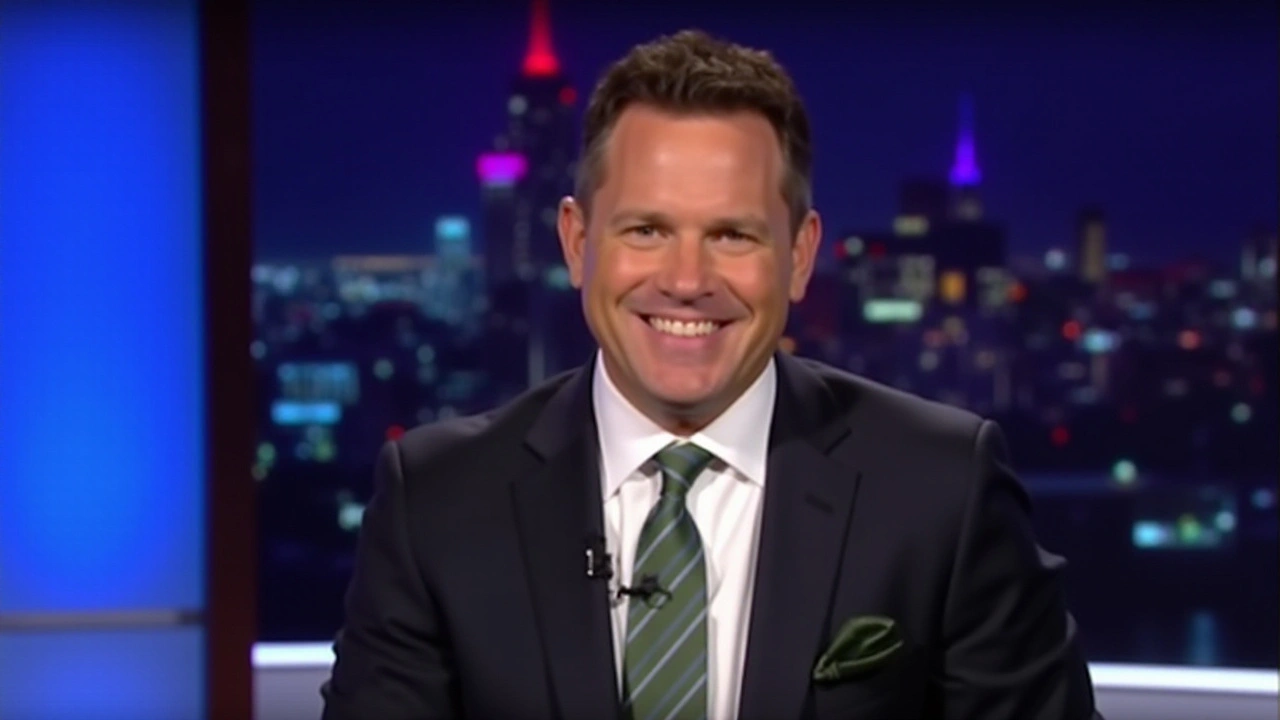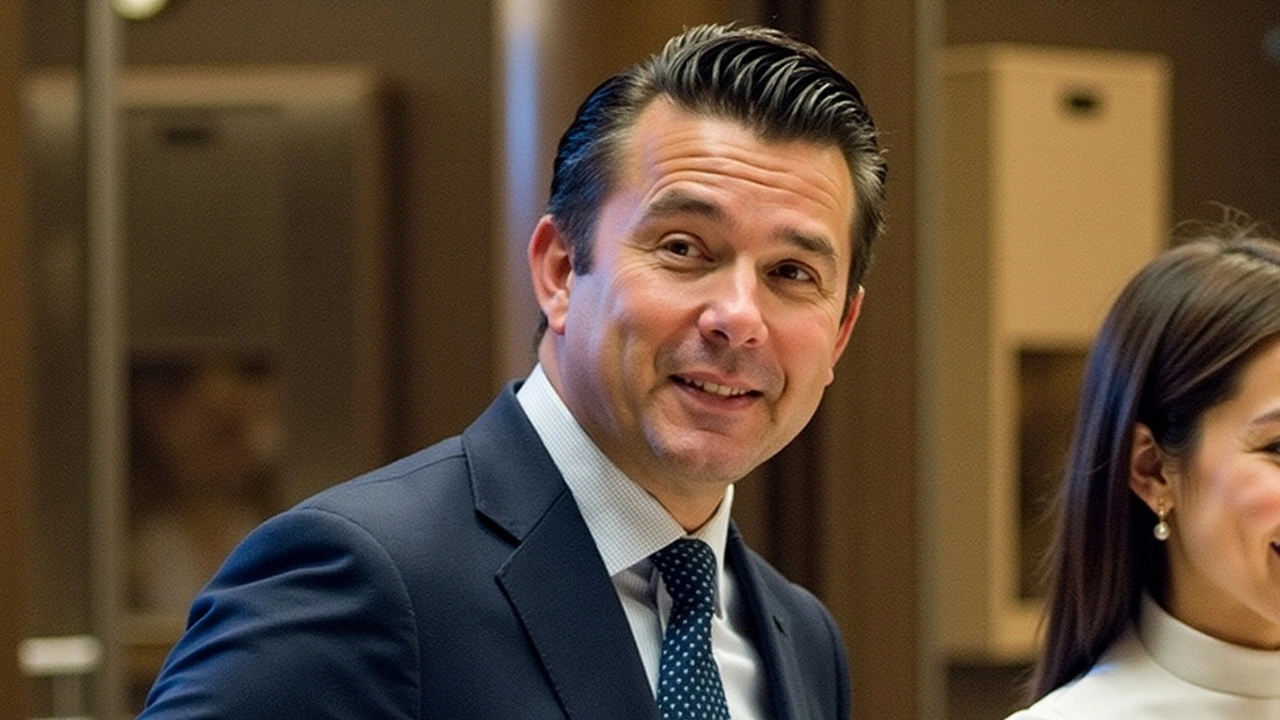Introduction: The Rise of Pete Hegseth
Pete Hegseth, a Fox News host and former Army infantry captain, has recently risen to national attention due to his nomination by President-elect Donald Trump for the role of Secretary of Defense. Hegseth's nomination has sparked widespread debate and scrutiny, given his career trajectory, personal convictions, and potential impact on the future of the United States military. Known for his outspoken criticism of certain military policies, his ascendancy to such a critical position is seen by many as controversial, amplifying pre-existing tensions within the landscape of national defense and military operations.
A Background in Service
Hegseth, aged 44, holds a fascinating profile combining military experience with media influence. As an Army infantry captain, he served valiantly in the complex terrains of Iraq and Afghanistan, experiences that undeniably shaped his views on military operations and strategies. His academic foundation is impressive, boasting an undergraduate degree from Princeton and a graduate degree from Harvard. These credentials suggest a blend of intellectual prowess and practical experience. However, this background has not been without its sceptics, particularly regarding his current capacity to handle a role that entails leading over 2 million members of the armed forces and managing a budget that, in these times of global conflict, could easily surpass the $1 trillion mark, raising questions about resources allocation and military spending priorities.
Stances on Diversity and Inclusiveness
Among the more contentious dimensions of Hegseth's nomination are his views on military diversity and inclusiveness. These issues have long been critical within the Pentagon's evolving culture, with recent years seeing significant shifts towards greater inclusivity. A pivotal moment came in 2016 when combat roles were opened fully to women, marking a major step in gender equality within the military. However, Hegseth has consistently expressed skepticism about the role of women in combat, which has raised alarms about a potential rollback of these hard-won gains under his leadership. His candid criticism of the Pentagon's current diversity initiatives seems at odds with the broader societal push for equal representation and opportunity.
Lack of Senior Administrative Experience
An area of significant concern is Hegseth's perceived lack of senior administrative experience, particularly in a role as consequential as that of Secretary of Defense. The enormity of responsibilities, from strategic command to fiscal management of an extensive budget, is daunting even for seasoned professionals. Hegseth's career primarily centering around a media presence and military ground experience may not cover the requisite breadth demanded by such a vast and varied administrative challenge. His candidacy thus raises valid questions about leadership readiness at a time when the Department of Defense plays a pivotal role in navigating power dynamics on both domestic and international stages.
Global Impacts and Military Engagement
The nomination for the helm of America's defense comes at a historically sensitive time. The Pentagon faces multifaceted conflicts: the ongoing war in Ukraine remains a flashpoint in Eastern Europe, there is a volatile escalation between Israel and Hamas, and the potential for conflict to expand between Israel and Lebanon looms large. These critical challenges require not only military acumen but diplomatic prowess and an understanding of global strategy. Hegseth's track record offers little public insight into how he might approach these conflicts. His appointment would come with the immense responsibility of balancing military engagement with foreign policy demands, managing alliances, and ensuring national security adherence in an increasingly interconnected and unpredictable world.
Public Perceptions and Controversies
Beyond military intelligence and policy, Pete Hegseth's public persona and incidents from his past add layers to the apprehensions surrounding his nomination. A notable incident unfolded in 2015 when Hegseth, while filming a segment of Fox & Friends, accidentally struck an Army band member with an axe, underscoring concerns around his decision-making dynamics. While the incident was not severe, the optics resonate with his critics, who question his suitability in the highest echelons of military command. Such controversies augment the narrative of unpredictability associated with his potential tenure at the Department of Defense.
The Road Ahead for the Pentagon
If confirmed, Hegseth will find himself leading a Pentagon grappling not only with issues of armed service member welfare, strategic responsibilities across militarized zones, but also internal battles related to diversity, equity, and inclusiveness. The potential recalibration of these initiatives under Hegseth's leadership continues to stir dialogue among defense policymakers, social critics, and military personnel alike. He would usher in a change, the impacts of which may extend beyond immediate policy alterations, influencing longstanding military culture and future operational dynamics.

Conclusion: An Unpredictable Future
In summary, Pete Hegseth’s nomination for Defense Secretary finds itself at the nexus of military tradition, current geopolitical demands, and modern cultural expectations. His mix of compliance with traditional military philosophies and critique of progressive policies positions him as a polarizing figure whose leadership could pivot the Department of Defense in unexpected directions. As Washington prepares for confirmation debates, the implications of Hegseth's potential appointment continue to command the nation’s attention, poised to shape the future roles and functions of America’s military might.


Susan Mark
November 13, 2024 AT 21:59Reading through the nomination details, it feels like a classic case of media hype mixing with real-world experience. Hegseth’s infantry background gives him some street‑level perspective that many bureaucrats lack. At the same time, the concerns about his lack of senior admin work are worth keeping an eye on. It’ll be interesting to see how hisPrinceton‑Harvard mix shapes his policy choices.
Jason Jennings
November 13, 2024 AT 22:16America needs a real tough guy, not some TV host playing soldier. Hegseth’s all talk and no real strategy will just weaken our defenses.
Diego Vargas
November 13, 2024 AT 22:32Look, the defenese budget is already over a trillion and we can’t afford a rookie making big calls. Hegseth’s experience in Iraq was limited to combat ops, not the fiscal juggling act the DoD needs. The Pentagon’s procurement system alone demands a seasoned leader. So putting a broadcaster in charge is a gamble that could backfire badly.
Alex Lee
November 13, 2024 AT 22:49He is a total disaster for the Pentagon.
Vida Yamini
November 13, 2024 AT 23:06Okay folks let’s take a step back and look at the bigger picture here. The role of Secretary of Defense isn’t just a job it’s a massive responsibility that affects millions of lives around the world. Hegseth’s background as a former infantry captain gives him some dust‑covered boots on the ground experience that we don’t see in a lot of career politicians. Yet the transition from front‑line leadership to managing a trillion‑dollar budget is a leap that requires a whole different set of skills. Diversity and inclusiveness in the military have become core values that help keep the force adaptable and resilient. Some of the criticism he’s faced suggests he might roll those back which would be a step backward for the institution. On the other side some argue that a focus on traditional combat methods could streamline certain operations in a rapidly changing threat environment. It’s also worth remembering that the Pentagon is juggling multiple crises right now from Ukraine to the Middle East and the Indo‑Pacific. Decision‑making under pressure can be good for some but disastrous if the leader lacks diplomatic nuance. We should also consider the public perception factor – a former TV personality can bring transparency but also invites more scrutiny and media circus. If the Senate decides to confirm him it will come with a watchful eye from both allies and adversaries alike. Ultimately the best outcome is a leader who can balance combat experience with strategic foresight. Let’s keep the conversation calm and data‑driven as we evaluate what’s at stake for the nation. The stakes are high and the choices we make now will echo for generations to come.
James Lawyer
November 13, 2024 AT 23:22While the concerns raised are valid, it is also important to recognize that non‑traditional backgrounds can bring fresh perspectives to entrenched institutions. Hegseth’s combat experience may provide practical insight that career bureaucrats might overlook. However, his limited senior‑level administrative exposure does raise questions about fiscal stewardship and policy implementation. A balanced assessment should weigh both his operational credibility and the necessity for seasoned management. The Senate’s confirmation process will, I hope, address these intricacies thoroughly.
Abby Culbertson
November 13, 2024 AT 23:39Honestly i think this whole drama is just too much. Hegseth seems like a mess.
Awolumate Muhammed Abayomi
November 13, 2024 AT 23:56Yo we gotta stay positive and push for a leader who can inspite the troops and get thigns done! Hegseth might have some flaws but w/ the right team we can make it work. let's keep the morale high and support each other!